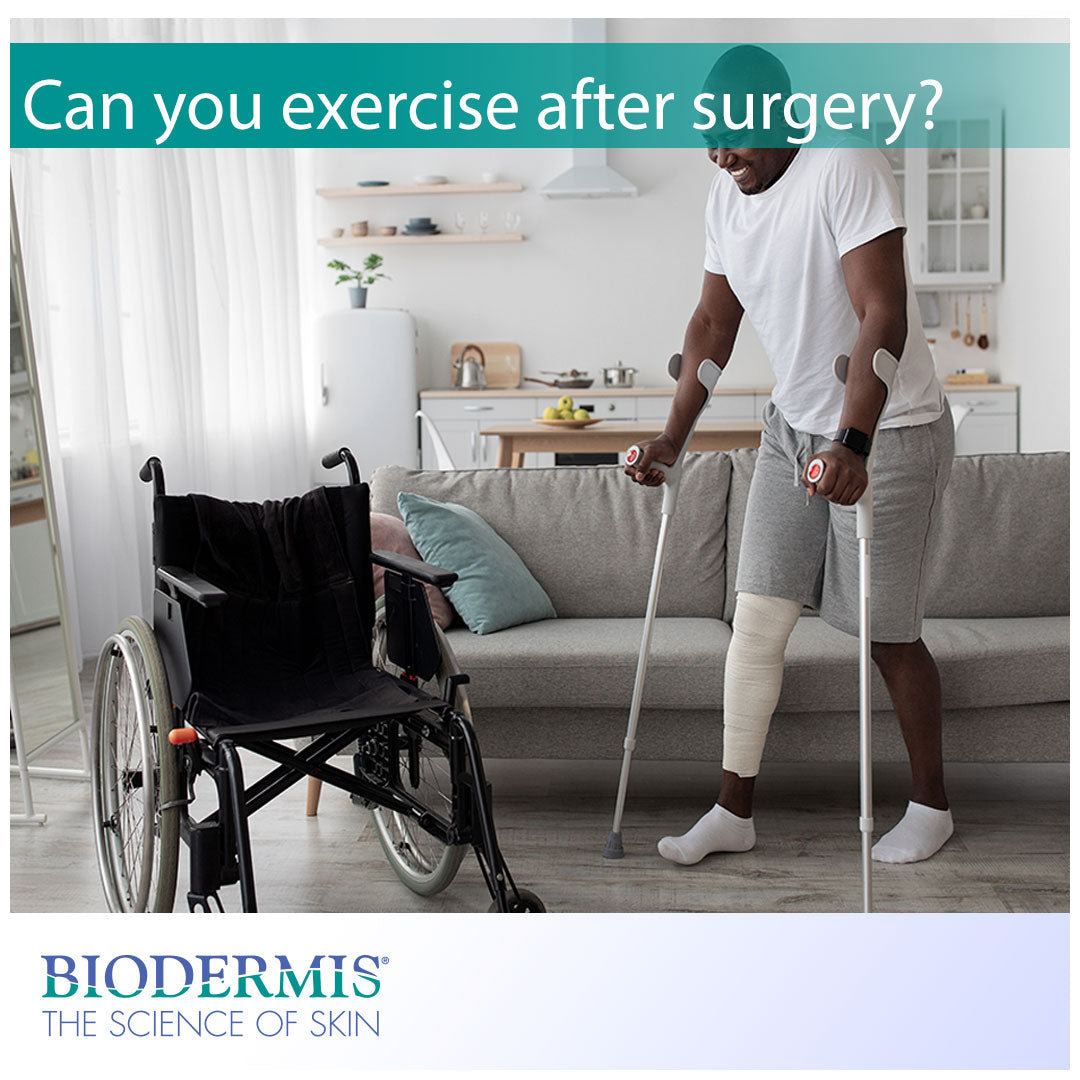Like most questions regarding surgery and the patient, how quickly you can start exercising depends on what kind of surgery you had and how quickly your body recovers. A more extensive procedure, such as an open heart surgery, will likely require more down time than a hand or wrist surgery. Depending on your surgery, your surgeon will likely recommend that you rest and recovery for at least several weeks to a few months. Older patients will require more down time than younger patients because their bodies take longer to fully heal. Furthermore, if you have an underlying condition, you may need to take greater care after your surgery than someone who is relatively healthy. In this article, we will go over when you can resume exercise after your surgery and what types of exercises are generally safe.
How long will recovery take?
For a major procedure like open heart surgery, where the surgeon has to crack open the sternum (breastbone), you can expect to be recovering for at least two to three months. In elderly patients, this timeframe may look a little longer. In contrast, for a less serious procedure such as a tonsillectomy, the surgeon only has to make small incisions inside the mouth. Since there are no external incisions, recovery time is usually a lot shorter. Patients can expect to resume full activity after one or two weeks of having their tonsils removed.
For some procedures, there is the option of having a minimally-invasive procedure versus an open procedure. An appendectomy, which is the surgical removal of the appendix, can sometimes be performed using a minimally-invasive laparoscopic technique that results in much shorter recovery times than the traditional open appendectomy. Before choosing a surgeon, it will be in your best interest to inquire if a minimally-invasive option is available for your procedure type.
Independent of surgery type, there are other variables to consider that influence overall recovery time for patients. The age of the patient is a considerable factor that can increase or reduce post-operative recovery. There are still many unknowns when it comes to aging and the healing process, but scientists know that white blood cells and stem cells, which play a role in wound healing, function less efficiently in older people. Furthermore, the older we get, the greater the risk for cardiovascular and other diseases, which can also slow down the healing process. In addition to age, people who are heavy drinkers or smokers will also see a slowed recovery response, which is why surgeons recommend no drinking or smoking before and after your surgery.
Safe exercises after surgery
For the best information about when you can start exercising again, always ask your surgeon. If your surgery required stitches, then you likely won’t want to be engaging in any activities that can reopen your wound. Activities that should not be performed after surgery include lifting heavy objects, sprinting, or playing sports that require explosive movements. One of the best exercises that many people engage in after they have fully recovered is hydrotherapy, which is a term for activities done in a pool. Patients who have undergone hip, knee, or shoulder surgery are highly encouraged to exercise in the pool after they have recovered to strengthen their muscles and joints and to regain mobility. Some other safe exercises that you can do after recovering from surgery include stationary bikes, treadmills at low speeds, and resistance bands.
Biodermis is an innovative market leader with 30 years of expertise in the medical silicone industry. Visit Biodermis.com today to explore a complete range of scar management and post-operative care solutions.
PHYSICIANS AND MEDICAL PROFESSIONALS: REFER OR RESELL?
Biodermis offers custom tailored referral programs designed to simplify and reduce the cost of your patients' post-op care. Additionally, we offer professional pricing if you opt to retail our products. Give us a call at 800.322.3729, and we will be happy to provide additional details on these programs.



